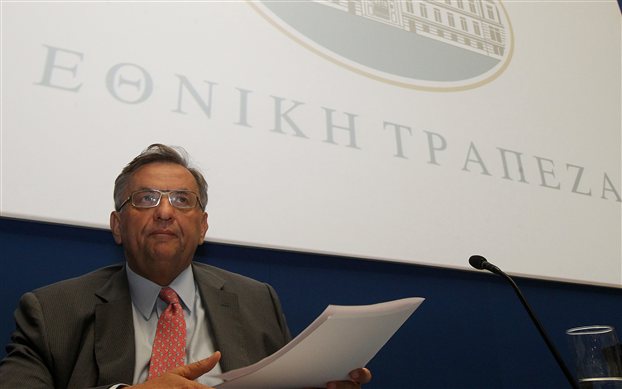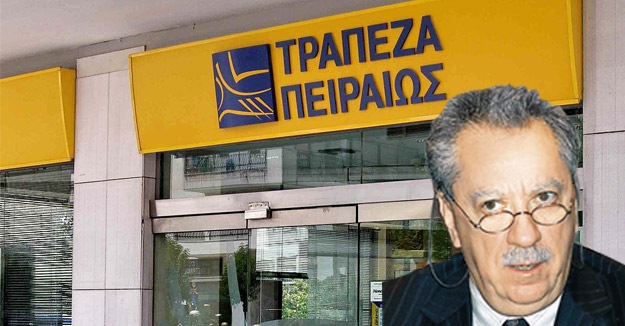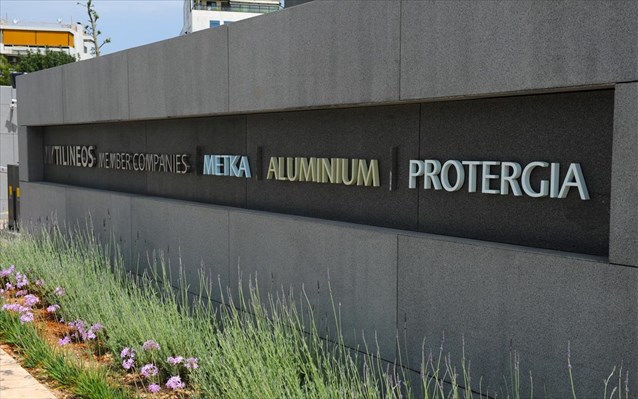Spiros Latsis
The Latsis Consortium, or rather its owner Spiros Latsis, has recently carefully avoided any publicity. Spiros Latsis has rarely appeared in the media, rarely given interviews and even more rarely shared his views on the developments in the country.
This has been the tradition of the company over the past 25 years.
Since last week, however, the media have been flooded by extensive publications by the Latsis Group through which the company is trying to explain its position in the case of Εurobank and, in general, to describe how the Latsis family sees their investment initiatives and business activities in Greece.
It is known that, recently, the consortium has been trying to reposition itself in the Greek business scene.
The group has lost a lot due to the restructuring of the banking sector – an investment to the amount of 2.5 billion euro and an even larger property have whittled away in no time, leaving the Latsis Group outside the financial market that had provided it with protection and support in the previous years.
Upon leaving the banking market, the consortium has lost some of its strength, power and opportunities: it seems that the shares it holds in the National Bank will not suffice to cover the large losses from Εurobank.
Now the Latsis Group is fighting for oil in a problematic market, showing a desire for the old airport in Athens and however facing vague competitors, hostile local factors and suspicious politicians.
Moreover, in the new environment that has formed in the country due to the numerous interventions and the apparent preference of the Troika for foreign investors, the consortium is aware of the fact that it will need more resources and new allies to cover the losses from the previous periods.
Therefore, the recent publications show only its desire to return to an ever-changing market, and that in a country that is already connected with Europe in many ways and is bound to follow this path, with all the ensuing consequences for local companies.
However, the consortium is not the only one to defend itself. Strange as it may seem, the National Bank has started defending itself too. Its chief executive Alexandros Tourkolias is feeling the pressure on the part of the Troika, realizing that foreigners want to take control of half the Greek economy through the National Bank and resisting a new capital increase, which will undermine the recent positions of the Greek investors and will benefit the advent of the foreigners, who are awaiting their time.

Alexandros Tourkolias is fighting by every means, exhausting every opportunity to meet the capital requirements with the bank’s own resources and requesting time to show the benefits of the internal restructuring and the operating profitability, as he calls it. He wants to prevent, at all costs, the "dehellenization" of the National Bank, which is requested by many.
However, he cannot avoid the pressure. Piraeus Bank of unreasonable Michalis Sallas has ranked first in the banking market, the neighbouring Alpha Bank will be able to break free from the shackles of the Troika due to the capital increase it has been able to provide and Eurobank will probably be able to quickly regain its competitive position in the market, if it passes into the hands of foreigners, which is what the Troika wants.

If, despite the efforts of Alexandros Tourkolias, the National Bank were left alone it would probably be subjected to even greater pressure until it bows down and accepts its "dehellenization" as a natural consequence.
In all cases, however, many important issues relating to the banking market and hence to the entire business community are currently being addressed.
All major companies have been put to the test over the past 20 years due to the numerous consequences of the economic crisis, the lower base income and the new consumer standards that have been imposed out of necessity.
The positions of former major steelmakers such as Angelopouli, Manesis, Stasinopouli are weakened due to the reduction of all types of construction activities, their companies are vegetating, their chimneys are inactive and the banks are seeking the large loans from the past.
The cement industry has also lost its former glory. Once leaders in the social sphere, now the situation of the companies in this industry is hard and they are pushing for collective redundancies.
The Mitilineos Group is fighting with the national electric company for better electricity prices for the energy-intensive producer of aluminium. A lot of things will depend on whether the company will be able to establish new relations with the national electric company or not.

There are open fronts in the field of energy and construction where large companies have disappeared and ambitious young companies are threatening recent industrial leaders. Everyone is now convinced that all are reconsidering their positions. The new time provides no security for anyone regardless of how strong a company was in the past.
Things will dramatically change in the field of energy as well, especially in the case of foreign interests in the small national electric company, demonstrated by German, French and Japanese companies. If another international player entered electricity production following the acquisition of the National Telecommunications Company (OTE) by the Germans, the game would radically change.